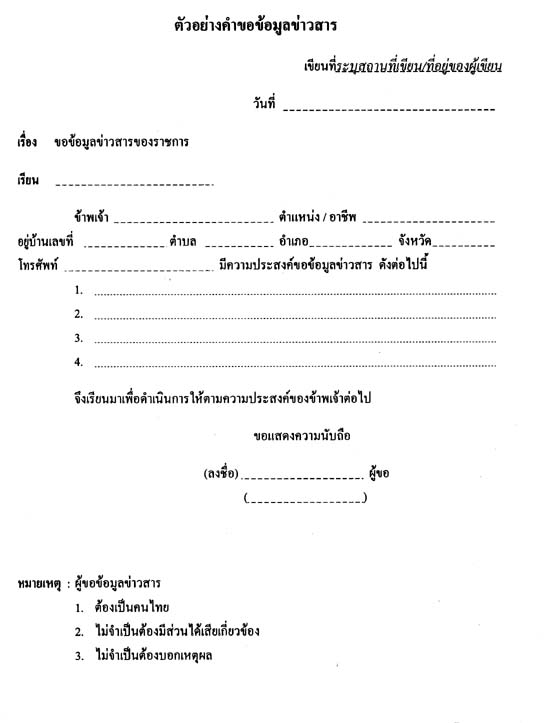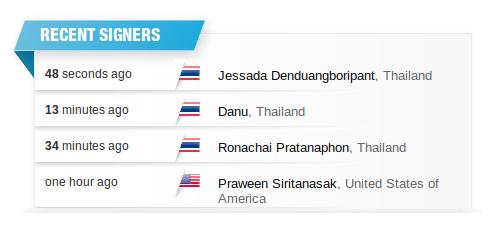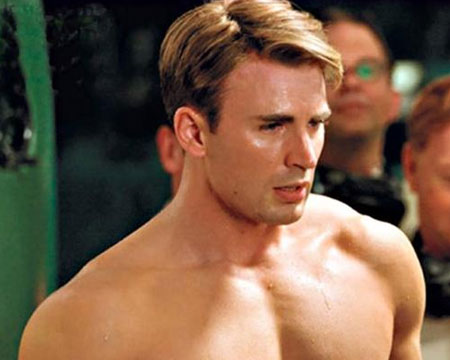 |
คุณ kakratoo (บัตรผ่าน 350001) คห. 25
1. ตอบไปแล้วว่านี่ไม่ใช่การกล่าวหาหรือร้องเรียน ในขั้นตอนนี้เป็นการขอข้อมูลเท่านั้น เพราะเราไม่มีอะไรในมือที่เป็นแก่สารสำคัญที่จะกล่าวโทษผู้ใด
2. ผมเคยได้พยายามหาหนทางติดต่อโดยตรงแล้ว ปรึกษาหลายคนในวงการ แต่อาจเข้าไม่ถูกทางจึงไม่เป็นผล ไม่อาจหาสายเชื่อมโยงได้ ถ้าคุณติดต่อให้ได้หรือมีข้อแนะนำเฉพาะเจาะจงอย่างไรก็บอกมาเลยครับ
3. ข้อเท็จจริงที่คุณว่าใครอยู่ในงานหรือไม่อยู่ในงานโปรดระบุเฉพาะบุคคลมานะครับ จะได้พูดให้ตรงกันว่าเป็นท่านใด (ถ้าหมายถึงคณบดีหรือหัวหน้าภาคให้ดูข้อถัดไป)
4. รายชื่อทั้งหมดทั้งสิ้นนี้ผมก็นำมาจากเอกสารที่หาได้ บางท่านอาจถูกนำชื่อมาใส่โดยมิได้ยินยอม หรือมีชื่อเพราะว่าดำรงตำแหน่งบริหาร ซึ่งก็เป็นขั้นตอนตามปกติที่จะมีชื่ออยู่และถูกถามในเกี่ยวกับเรื่องราวของหน่วยงานที่อยู่ในความดูแล ถ้าทำหน้าที่โดยสุจริต ไม่มีบกพร่องอะไร ก็ไม่ต้องกลัวคำถามครับ
5. ในจุฬาฯ มีอีเมลเวียนกันเงียบๆ มีกระแสต่อต้านมาระยะหนึ่งแล้ว ไปถึงไหนล่ะครับ ? ถ้าไม่ทำเอิกกะเริกแล้วจะเห็นผลไหมครับ
แต่ละคนย่อมเห็นต่างกันไป มีวิธีการต่างกันไป แต่ถ้าทำในกรอบครรลองกติกาสากลที่เป็นที่ยอมรับกันก็คงต้องทนกันบ้างนะครับ ขออภัยในความไม่สะดวกด้วย
คนเรามีผิดมีชอบชั่วดีกันได้ ส่วนที่ทำดีเราก็สรรเสริญ แต่ส่วนที่ไม่ดีหากมีก็ต้องถูกดำเนินการตามขั้นตอน ในสังคมไทยเรามักสร้างมายาคติขึ้นมาว่าปูชนียบุคคลหรือบุคคลที่มีชื่อเสียงในวงการเป็นผ้าขาวบริสุทธิ์ เกิดมาผุดผ่องทั้งกายใจไม่มีสิ่งใดแปดเปื้อน แต่ความเป็นจริงแล้วเขาก็เป็นมนุษย์เช่นเดียวกับเรานั่นเอง ย่อมมีด้านมืด ย่อมมีแก่ชราหลงลืมไปได้เช่นกัน ผมคิดว่ามายาคตินี้มีข้อเสียที่ทำให้บุคคลที่อยากให้เป็น "HERO" ในดวงใจอยู่ไกลคนทั่วไปและยากที่จะเป็น role model ได้ - role model ที่ดีควรจะแสดงให้เห็นว่าคนธรรมดาที่บางทีก็อ่อนไหวต่อสิ่งเย้ายวนหรือโง่เขลาเบาปัญญาไปบ้าง หากตั้งใจจริงก็จะประสบความสำเร็จได้ต่างหาก (ป.ล. ที่บ่นนอกเรื่องมานี่เพราะเจอเด็กหลายคนไม่ยอมเรียนวิทยาศาสตร์เพราะว่าไม่ได้ทุน x y z หรือเพราะไม่ได้คะแนนท็อปในวิชาวิทยาศาสตร์)
เพื่อยกตัวอย่างในต่างประเทศให้เห็นโปรดดูนักวิทยาศาสตร์ผู้ได้รับรางวัลโนเบลสองครั้งรายนี้
http://en.wikipedia.org/wiki/Linus_Pauling#Molecular_medicine.2C_medical_research.2C_and_Vitamin_C_advocacy
Pauling's work on vitamin C in his later years generated much controversy. He was first introduced to the concept of high-dose vitamin C by biochemist Irwin Stone in 1966. After becoming convinced of its worth, Pauling took 3 grams of vitamin C every day to prevent colds.[1] Excited by his own perceived results, he researched the clinical literature and published Vitamin C and the Common Cold in 1970. He began a long clinical collaboration with the British cancer surgeon Ewan Cameron in 1971 on the use of intravenous and oral vitamin C as cancer therapy for terminal patients.[64] Cameron and Pauling wrote many technical papers and a popular book, Cancer and Vitamin C, that discussed their observations. Pauling made vitamin C popular with the public and eventually published two studies of a group of 100 allegedly terminal patients that claimed vitamin C increased survival by as much as four times compared to untreated patients.[65][66] A re-evaluation of the claims in 1982 found that the patient groups were not actually comparable, with the vitamin C group being less sick on entry to the study, and judged to be "terminal" much earlier than the comparison group.[67] Later clinical trials conducted by the Mayo Clinic also found that high-dose (10,000 mg) vitamin C was no better than placebo at treating cancer and that there was no benefit to high-dose vitamin C.[68][69][70] The failure of the clinical trials to demonstrate any benefit resulted in the conclusion that vitamin C was not effective in treating cancer; the medical establishment also concluded his claims that vitamin C could prevent colds was quackery.[1][71] Pauling denounced the conclusions of these studies and handling of the final study as "fraud and deliberate misrepresentation",[72][73] and criticized the studies for using oral, rather than intravenous vitamin C[74] (which was the dosing method used for the first ten days of Pauling's original study[71]). Pauling also criticised the Mayo clinic studies because the controls were taking vitamin C during the trial, and because the duration of the treatment with vitamin C was short; Pauling advocated continued high dose vitamin C for the rest of the cancer patient's life whereas the Mayo clinic patients in the second trial were treated with vitamin C for a median of 2.5 months.[75] The results were publicly debated at length with considerable acrimony between Pauling and Cameron, and Moertel (the lead author of the Mayo Clinic studies), with accusations of misconduct and scientific incompetence on both sides. Ultimately the negative findings of the Mayo Clinic studies ended general interest in vitamin C as a treatment for cancer.[73] Despite this, Pauling continued to promote vitamin C for treating cancer and the common cold, working with The Institutes for the Achievement of Human Potential to use vitamin C in the treatment of brain-injured children.[76] He later collaborated with the Canadian physician Abram Hoffer on a micronutrient regimen, including high-dose vitamin C, as adjunctive cancer therapy.[77]
With Arthur B. Robinson and another colleague, Pauling founded the Institute of Orthomolecular Medicine in Menlo Park, California, in 1973, which was soon renamed the Linus Pauling Institute of Science and Medicine. Pauling directed research on vitamin C, but also continued his theoretical work in chemistry and physics until his death. In his last years, he became especially interested in the possible role of vitamin C in preventing atherosclerosis and published three case reports on the use of lysine and vitamin C to relieve angina pectoris. In 1996, the Linus Pauling Institute moved from Palo Alto, California, to Corvallis, Oregon, to become part of Oregon State University, where it continues to conduct research on micronutrients, phytochemicals (chemicals from plants), and other constituents of the diet in preventing and treating disease. Several researchers that had previously worked at the Linus Pauling Institute in Palo Alto, including the assistant director of research, moved on to form the Genetic Information Research Institute.
ถ้าดูแล้วไม่พอใจ ลองอ่านประวัติ Marie Curie ก็ได้แต่นั่นเป็นเรื่องชู้สาวแทน
อยากได้ของไทยก็อ่านประวัติ ศาสตราจารย์สตางค์ มงคลสุข
ทุกท่านที่กล่าวมานี้มีคุณูปการใหญ่หลวง แต่ก็มีข้อบกพร่องในตนเองทั้งสิ้น
| จากคุณ |
:
จขกท (SummerMan) 
|
| เขียนเมื่อ |
:
4 ธ.ค. 55 09:45:16

|
|
|
|
 |
















